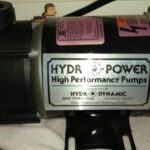Your home is like a living thing that needs regular care.
Much like how we brush our teeth every day to prevent problems later, houses need consistent attention too.
I’ve put together 10 super simple steps that’ll save you time, money, and those nasty surprises that pop up when we ignore our homes.
Trust me, a little bit of work now means a lot less work (and expense) later!
Simple Steps For Efficient House Maintenance
Think of these steps as your home’s wellness routine.
Just like we need regular check-ups, our houses need attention to stay healthy.
I’ve arranged these in a way that makes sense throughout the year, but you can adjust them to fit your schedule. Ready to make your home maintenance super simple? Let’s jump right in!
Create a Seasonal Maintenance Calendar
A maintenance calendar is just a fancy way of saying “make a schedule.”
Grab a regular calendar or use your phone and mark down when to do certain tasks. Winter? That’s when you check your heating. Summer? Time to look at your cooling system.
The beauty of a calendar is that you never forget important stuff.
Put tasks like changing air filters every three months, cleaning gutters in the fall, and checking smoke detectors when the time changes.
Hang this calendar somewhere you’ll see it.
The fridge works great! Color-code it if you want to get fancy.
The key is to spread out tasks so you’re never doing too much at once.
Inspect Plumbing Regularly
Water can cause massive damage when it goes where it shouldn’t.
Walk around your house every month and look under sinks for wet spots.
Check around toilets for dampness. Look at exposed pipes for any drips.
Run water in sinks that don’t get used much. This keeps the drain traps full and prevents sewer gas from coming up.
When you use your shower or sink, pay attention to how fast water drains.
If it’s slowing down, you might have a clog starting.
A little drain cleaner now is better than a plumber visit later!
Don’t forget to check your water heater for leaks or rust.
And know where your main water shut-off valve is – when there’s a big leak, you’ll need to turn it off fast!
Keep HVAC Systems in Top Shape
Your heating and cooling systems work super hard.
Change those air filters every 1-3 months depending on your system. It’s like giving your HVAC a new pair of lungs!
Keep the area around your furnace and air conditioner clear. No storage, no dust bunnies, no pet hair allowed.
Get your system checked by a pro once a year.
Spring is great for checking your AC, and fall is perfect for your heating system.
Over time, dust and debris can accumulate, impacting air quality.
For Phoenix residents, Arizona Chimney & Air Ducts is the best option for professional air duct cleaning services.
Learn how to spot trouble signs – weird noises, uneven heating or cooling, or higher energy bills might mean something’s wrong.
Catching problems early saves money!
Maintain the Roof and Gutters
Your roof is like your home’s umbrella, and those gutters are the handles! Check your gutters twice a year and after big storms.
When they get clogged, water can back up and damage your roof or walls.
Look at your roof from the ground with binoculars.
See any missing or curling shingles? Any spots that look different? These might need attention.
Trim tree branches that hang over your roof.
During storms, they can scratch or even puncture your shingles.
After cleaning gutters, make sure downspouts direct water away from your foundation.
Water near your foundation can cause big problems in your basement or crawl space.
Check Electrical Systems
Electricity is super helpful but can be dangerous if things aren’t working right. Look at your outlets – are any of them discolored or warm to touch? That’s bad news.
Test ground fault circuit interrupters (those outlets with the little buttons) monthly by pressing the “test” button.
Look at your circuit breaker box yearly. Make sure everything is labeled correctly so you know which switch controls what.
Check for frayed cords on lamps and appliances. Replace them if they’re damaged.
If lights flicker or breakers trip often, you might have a bigger issue. Time to call an electrician before small problems grow into big ones!
Clean and Refresh High-Traffic Areas
Some parts of your house get way more action than others. Entryways, kitchens, and living rooms need extra attention.
Vacuum or sweep high-traffic areas twice a week. Dirt and grit act like sandpaper on your floors, wearing them down faster.
Rotate rugs every few months so they wear evenly. This makes them last so much longer.
Wipe down doorknobs, light switches, and handrails weekly – these spots collect germs from everyone’s hands!
Refresh your high-traffic areas by moving furniture slightly when you clean. This prevents permanent wear patterns in carpets and floors.
Keep a small cleaning kit in high-traffic areas for quick clean-ups. This stops small messes from becoming big problems.
Service Major Appliances
Appliances work hard for us every day. The better we treat them, the longer they’ll stick around!
Clean your refrigerator coils twice a year. They’re usually on the back or bottom, and when they’re dusty, your fridge has to work extra hard.
Run an empty hot cycle in your dishwasher with vinegar to remove buildup. Clean the filter at the bottom too.
Vacuum the lint trap area of your dryer and check the vent hose yearly. Lint buildup is a fire hazard!
Clean your oven regularly to prevent smoke and bad smells. And don’t forget to wipe out your microwave weekly.
Read the manuals for your appliances. Most have specific maintenance tips that will help them last longer.
Pest Prevention and Control
Nobody wants roommates that don’t pay rent! Walk around your house every season and look for entry points – cracks in the foundation, gaps around pipes, tears in window screens.
Keep food in sealed containers. Wipe counters after preparing meals. Take out trash regularly. These simple fixes make your home less attractive to pests.
Check dark, damp areas like basements, attics, and under sinks for signs of pests. Look for droppings, chew marks, or nests.
If you spot pests, act quickly! Start with the least toxic methods like traps before moving to chemicals.
Consider the outside of your home too. Keep woodpiles away from your house. Trim bushes so they don’t touch your walls. These create highways for bugs to get inside.
Exterior Maintenance and Landscaping
Your home’s outside faces sun, rain, snow, and wind all year long. Check your home’s exterior twice yearly for peeling paint or damaged metal siding.
Clean your siding yearly with a garden hose. If you see green stuff growing, that’s mold or algae and needs special cleaning.
Trim plants at least 2 feet from your house. Plants touching your walls can trap moisture and lead to damage.
Look at concrete areas like your driveway and walkways. Fill small cracks before they become big ones.
Check your fence for loose boards or posts. A wobbly fence will only get worse with time.
Your yard needs regular love too! Mow regularly, pull weeds, and water appropriately for your climate. A well-maintained yard improves your home’s value and makes maintenance easier.
Declutter and Organize Regularly
A cluttered house is harder to maintain. Every 3 months, go through one area of your home and decide what to keep, donate, or toss.
Use the “one in, one out” rule – when you buy something new, something old leaves your home.
Create homes for everything. When items have a place to live, they’re more likely to get put away.
Label storage bins and boxes so you know what’s inside without opening them.
Keep cleaning supplies where you use them. Having supplies handy makes quick clean-ups more likely.
Store items you don’t use often in harder-to-reach places, saving prime real estate for things you need regularly.
Conclusion
Taking care of your home doesn’t have to be overwhelming.
These 10 steps make maintenance manageable by breaking it into bite-sized tasks.
Remember, the goal isn’t perfection – it’s preventing big problems through small, regular actions.
Start with one area that bothers you most.
Maybe it’s that dripping faucet or the cluttered garage. Small wins build momentum!
The best part? As you get into the habit of maintaining your home, you’ll spend less time on emergency fixes and more time enjoying your space.
Your home works hard for you – these steps are your way of saying “thanks” while protecting your investment.
Happy home maintaining! Your future self will thank you for the effort you put in today.



